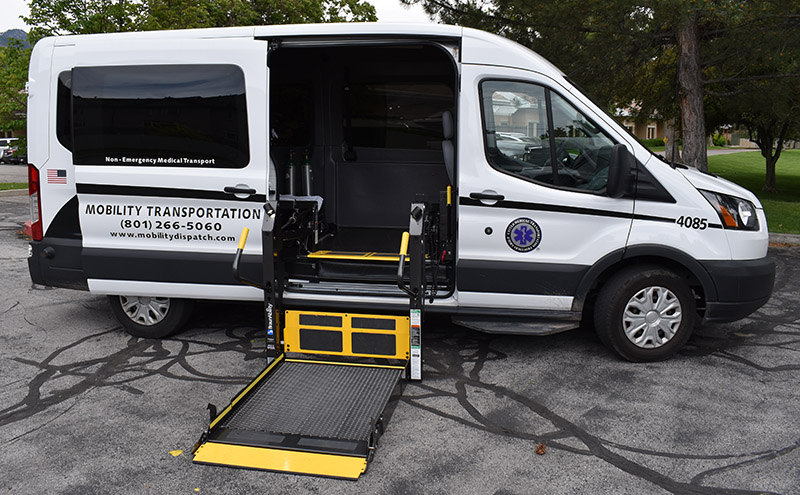Reliable Medical Transportation Services: Guaranteeing Safe Transit
Budget Friendly and Accessible Medical Transportation Options for each Scenario
In the world of medical care, the ability to accessibility medical solutions is critical, yet the obstacle of inexpensive and available transportation can frequently prevent people from obtaining necessary treatment. While some might have the methods to safeguard exclusive transport, numerous face obstacles that make it tough to get to clinical visits or facilities. Nevertheless, the landscape of clinical transport choices is progressing, using a variety of options tailored to different needs and situations. By discovering specialized clinical transportation services, community transport programs, ride-sharing and taxi services, non-emergency medical transport, in addition to public transit and paratransit alternatives, individuals can locate methods that cater to their particular needs and ensure they obtain the treatment they require.
Specialized Medical Transport Services
Specialized medical transportation services play a crucial function in making sure risk-free and efficient transport for people calling for specialized treatment throughout transit. These services deal with individuals with distinct medical demands, such as those requiring continuous surveillance, specific devices, or medical interventions during transportation. By using specially complete automobiles and skilled medical employees, specialized medical transport solutions make certain that people get the required care while being carried in between health care centers, homes, or various other locations.
One secret aspect of customized medical transportation solutions is the concentrate on person convenience and safety. Clinical transport groups are educated to manage various medical problems and emergencies that might occur throughout transportation, offering a greater level of care than conventional transportation choices. Furthermore, these services often provide door-to-door help, decreasing the stress and pain that patients might experience throughout transfers.
Community Transportation Programs
Having actually resolved the critical role of specialized medical transportation solutions in making sure secure and effective transportation for individuals with one-of-a-kind clinical demands, the focus now changes to analyzing Area Transport Programs - medical transportation. These programs play a crucial role in giving economical and obtainable transportation solutions for the basic populace, consisting of elders, individuals with disabilities, and low-income households who might face difficulties in accessing traditional transportation choices
Neighborhood Transport Programs incorporate a series of solutions such as fixed-route buses, paratransit services, volunteer vehicle driver programs, and ridesharing initiatives. These programs are commonly supported by city governments, non-profit companies, or exclusive companies to make sure that people have dependable transportation alternatives to reach clinical visits, grocery store shops, social tasks, and various other essential destinations.
Ride-Sharing and Taxi Solutions

One of the vital advantages of ride-sharing and taxi solutions is their accessibility. These services operate 24/7, enabling individuals to travel to clinical consultations, drug stores, or healthcare facilities any time of the day. In addition, ride-sharing and taxi solutions provide to individuals with mobility difficulties by offering wheelchair-accessible lorries upon demand.
Furthermore, ride-sharing and taxi services can be specifically useful for people living in areas with limited mass transit choices. By linking the gap in between home and medical care facilities, these solutions play an important role in guaranteeing that everybody has accessibility to important clinical solutions.
Non-Emergency Medical Transportation

Non-Emergency Medical Transport providers usually utilize qualified personnel that are experienced in helping individuals with differing medical demands (medical Resources transportation). These specialists make sure that individuals are securely moved to their destinations in a prompt way, resolving any specific demands or medical devices essential throughout the journey. By providing door-to-door service, Non-Emergency Medical Transportation improves the overall accessibility of medical care for individuals that might or else battle to attend essential clinical appointments. Overall, these solutions contribute dramatically to boosting medical care outcomes by facilitating the seamless transportation of patients to non-urgent clinical facilities.
Public Transportation and Paratransit Options
Public transit and paratransit choices provide vital transportation services for individuals with varying flexibility requirements, guaranteeing access to vital destinations such as clinical facilities and appointments. Public transit systems, including buses, trains, and metros, provide a cost-efficient and widely offered mode of transport for individuals looking for to reach clinical visits. These solutions are especially helpful for those who might not have access to private automobiles or need assistance as a result of wheelchair challenges.
Paratransit services provide particularly to people with disabilities who are unable to utilize typical public transport. These services use door-to-door transportation, fitting individuals with mobility devices, walkers, or various other movement aids. Paratransit lorries are geared up with functions such as mobility device ramps and securement systems to make certain the safe and comfortable transportation of travelers with differing mobility requirements.

Conclusion
